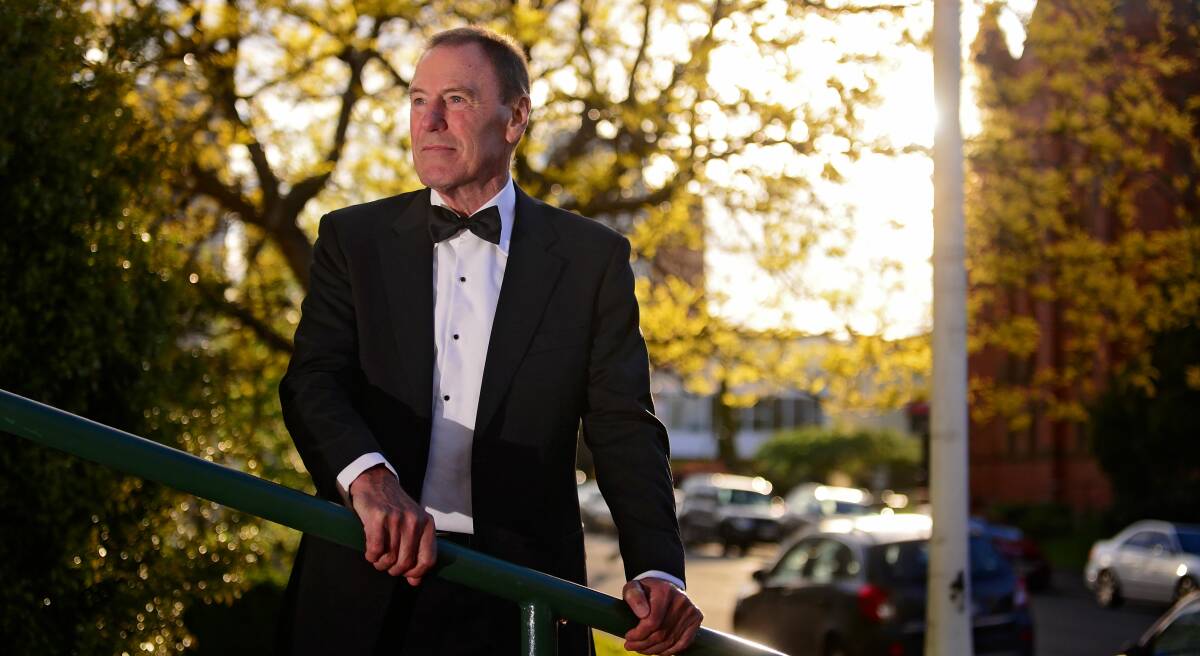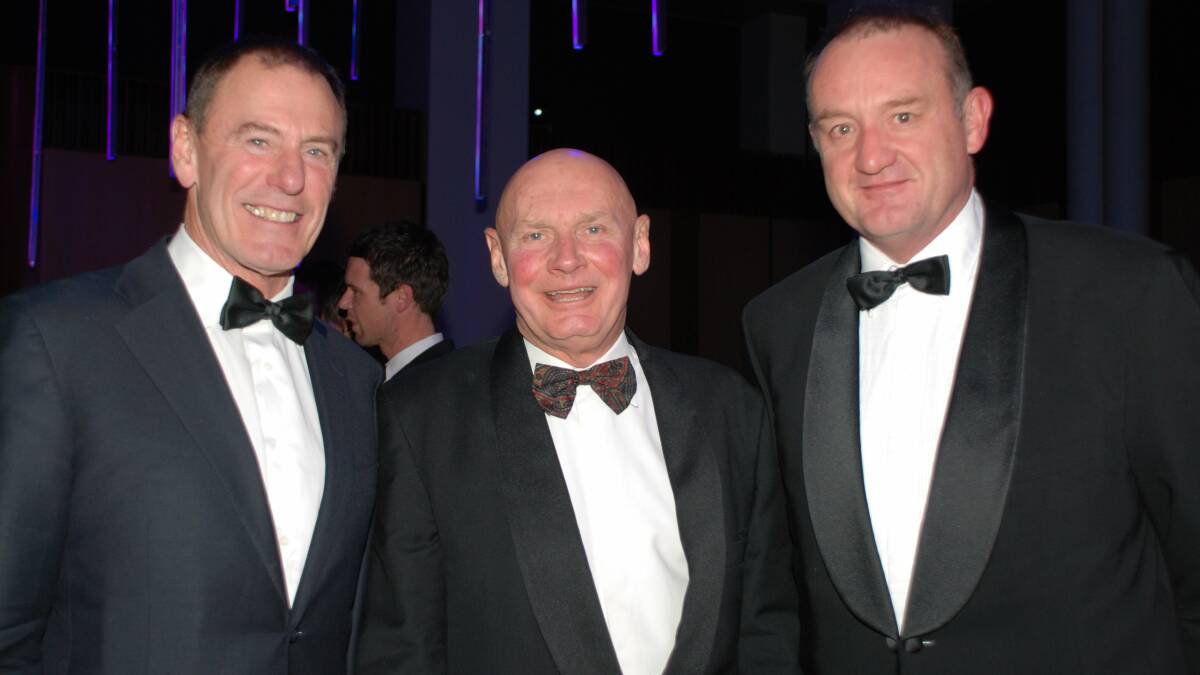
Lloyd Whish-Wilson has reached the senior echelons of Fairfax Media, helped to redevelop Inveresk and led the Launceston Chamber of Commerce.
Subscribe now for unlimited access.
or signup to continue reading
But he’s only written one CV in his life, when he applied for his very first job as an ABC cadet reporter, aged 15.
On Saturday, the former journalist and newsroom leader was inducted into the Chamber’s Hall of Fame for his contribution to the region and its business community.
Mr Whish-Wilson has steered newspapers through immense change while mentoring journalists who became industry leaders in their own right.
His time at The Examiner, where he became chief of staff in 1970 and progressed eventually to general manager in 1990, gave him an understanding of community news that prepared him for influential roles in Fairfax Media.
A background in news informed his approach to operating media businesses later on.
“You learned what worked and what didn’t work,” he said.
Mr Whish-Wilson worked for The Examiner at the time two of its most respected past editors, Michael Courtney and Rod Scott, led the newspaper.
“Both were intellects. They were willing to speak up and stand up on issues,” he said.
Former colleague Jo Archer, who started work in advertising for The Examiner shortly after Mr Whish-Wilson joined, watched him progress at the newspaper.
She said he helped journalists improve by having high standards.

“Him pushing them to grow has been the making of a lot of those careers.”
Former Examiner editor Martin Gilmour, who Mr Whish-Wilson employed as a copy boy in 1978, said he ran an organised newsroom as chief of staff.
Long after he’d left Tasmania, Mr Whish-Wilson would stay in touch.
“He was always someone you could ring for advice.”
As technology transformed news production, hot lead machines gave way to computer type setting. Eventually pages were built onscreen.
By the time he left Launceston and became general manager of The Canberra Times and Rural Press Victoria, the digital revolution had taken hold.
“This change is different in affecting both the revenue base, and your audience is going to be fractured, with some going online and some wanting to stick with print.”
Between 2000 and 2002 he advocated for Launceston as its business chamber president.
The University of Tasmania, land use planning and development approvals, visitor air transport and freight, port services at George Town and programs to strengthen the city heart formed some of its key projects.
In a message written in 2002, Mr Whish-Wilson reflected on his role: “[It’s] not without its dangers. Taking an opposition position on a high-profile issue can lead to the Chamber being painted in a negative light, which is the opposite of fact. The Chamber strongly supports development in northern Tasmania, but will continue to take a position on issues as they arise in the best interests of its members and the northern Tasmanian community as a whole.”
Jo Archer, who worked as an executive officer at the Chamber while he was president, said he didn’t back away from an issue and strongly protected its independence.
You need a strong organisation that represents a lot of businesses. Launceston has that.
- Lloyd Whish-Wilson
He harnessed the skills of the business community while leading the Chamber, bringing stakeholders together to make sure it was delivering services they needed, she said.
Mr Whish-Wilson said it was a hard time for the Chamber and for Launceston. The city lost Ansett flights after the company’s collapse. Qantas cut back on flights, and Mr Whish-Wilson met with Virgin Blue on the Chamber’s behalf.
Despite the challenges, the city responded.
“The good thing is we rallied support and most Launceston businesses got involved.
“I think the Chamber stood up for Launceston.”
A strong business chamber was vital for the health of a town, he said.
“You need a strong organisation that represents a lot of businesses. Launceston has that.”
Media holds a similarly important role.
“Where you see a good newspaper, you see a much healthier town.”
On the Better Cities Inveresk Development Committee he helped, along with others, to secure federal funding for the redevelopment of the area’s railyard.
The three tiers of government, UTAS, the Launceston Show Society, businesses and the public came together.
“We quickly got a lot of things done.”
Janine Healey, who Mr Whish-Wilson invited onto the Chamber’s board in 2000, said the redevelopment became a “game changer” for Launceston.
“If someone hadn’t taken that sole step back then, who knows what would’ve happened today.”
Mr Whish-Wilson counts it as one of his key achievements. He also lists the Ravenswood Walk Tall project among others he helped lead in the community.
After moving to Canberra, looking at Launceston’s health from afar gave him satisfaction.
When Rural Press and Fairfax merged in 2007, he went into senior management at the newly-formed Fairfax Media before retiring in 2011.
Both The Sydney Morning Herald and The Sun-Herald won Newspaper of the Year awards in that time.
Mr Whish-Wilson said he was surprised to be inducted into the Launceston Chamber of Commerce’s Hall of Fame.
“I don’t think I really deserve it, but I will take it,” he said.














